3 Reasons Change is So Scary
Fresh off the heels of Halloween, I’m intrigued by the reality, or idea, of fear.
As a Coach, I regularly help my clients navigate fear. Rather than the hair-raising, scream-inducing fright of a zombie, it’s most often the immobilizing, painful unknown of a foggy future. The majority of my Coaching is Transition Coaching. Clients are either currently navigating a personal or professional change, or anticipating one. With six years of Coaching under my belt, I’ve learned there’s a unique relationship between change and fear that most everyone experiences.
Fear is a powerful emotion that wants to tell us something. At it’s core, fear exists to help keep us safe.
Many years ago on a family vacation I was taking a beach walk with my little sister. We were on our own having a fun little adventure climbing on the rocks. I love efficient loops and thought, “Hey, if we keep going alongside the water, we can meet our family on the other side without going back over the hill.” As Abbie and I moved along, I slipped and cut the side of my foot on a sharp rock. Thank goodness I did. While it wasn’t a terrible cut, the bit of blood made me pause and think about what we were doing. I noticed the ocean moving with more force towards us and started to get scared. Growing up landlocked, I realized I didn’t know a hoot about the tide patterns, strength of the waves, and what was around the bend. The fear that bubbled up was just enough to help me make the decision to turn around with my sis and go back up the sandy hill.
Was it longer? Yes.
Was it safer than slippery rocks as the tide rolled in? Absolutely.
Did the fear inform a better decision? Definitely.
When fear pops up in a coaching conversation, I encourage my clients to be curious.
What does it want to tell you?
What might be the source of the fear?
These questions are best explored with a trusted person as it can be vulnerable to expose yourself and explore deep emotions.
Let’s explore why change and fear tend to buddy up.
Change disrupts.
Change = disruption. While it may seem like the change will impact just one part of life, realistically, in one way or another, the change will touch every dimension of our lives. How could it not? Our lives are synergistic and interconnected. Once the change starts in motion, it can be scary to let go of the familiar. It can be scary to witness the impact on other life areas you hadn’t envisioned. Our brains simply think that the familiar must be safe. We must walk through the plan in our mind and out loud so what’s coming next starts to be more familiar - even as it disrupts what we’re used to. Remember, disruption ⍯ destruction. Disruption and change is often healthy and good for us.
Change frightens our sense of ownership.
Change is scariest when we feel like it’s happening TO us. You know, feeling as if we’re on a rollercoaster, hanging on for dear life. There are all sorts of life changes that we would never choose for ourselves. For example, the death of a loved one. Whether unexpected or not, this massive life change can greatly shake the solid ground we thought we walked on. But even amidst external change like this, we have the opportunity to choose how we show up within the event. When we clarify options and choices, this empowers our agency. We didn’t choose the event, but we can choose our response. One wide-eyed choice after another diminishes the fear that we’re out of control and that the rollercoaster is in a free-fall.
Change distracts us with chilling “What if’s”.
One key distinction when we talk about fear is that it accompanies real OR imagined events. If we’re holding something vividly in our mind’s eye, our body doesn’t know that it’s not actually happening. Your palms can get sweaty, your breathing quicken, or your stomach could tighten just by imagining an event. Fear has an uncanny ability to be in the present moment (a big dog is lunging and barking at you) or the past (remembering how cornered you felt in that board meeting) and many times, in the future (envisioning being bored every day of retirement).
If we let the “what if” situation run amok in our brains, it can set an unhealthy pattern of what we think is true, simply because we replayed over and over what might happen.
If we don’t pierce through these future-fear thinking patterns and come back to the present, they can keep us paralyzed and miserable.
As long as your amygdala is fully firing, experiencing fear is universal. What varies greatly, is our personal responses to fear. Something scary to one person may not be scary at all to another. It’s important to honor personal experience and not dismiss fear as ‘silly’. Fear is a powerful emotion that wants to tell us something. It’s our responsibility to listen - and then thoughtfully respond - rather than recklessly react.
If you’re feeling fear creep up and would like to address it in a safe way, an inquiry call would be a great first step to get the support you need.

